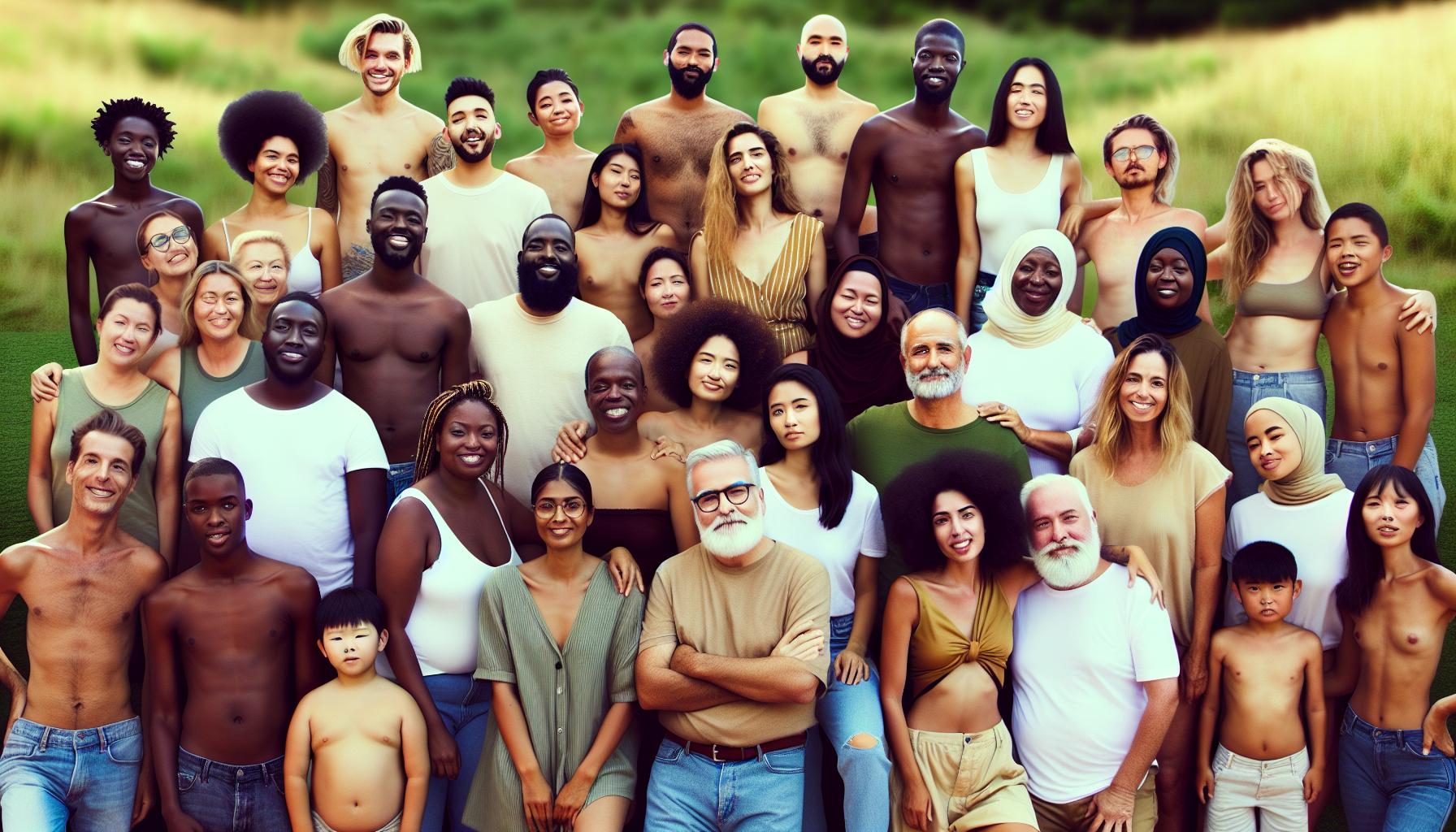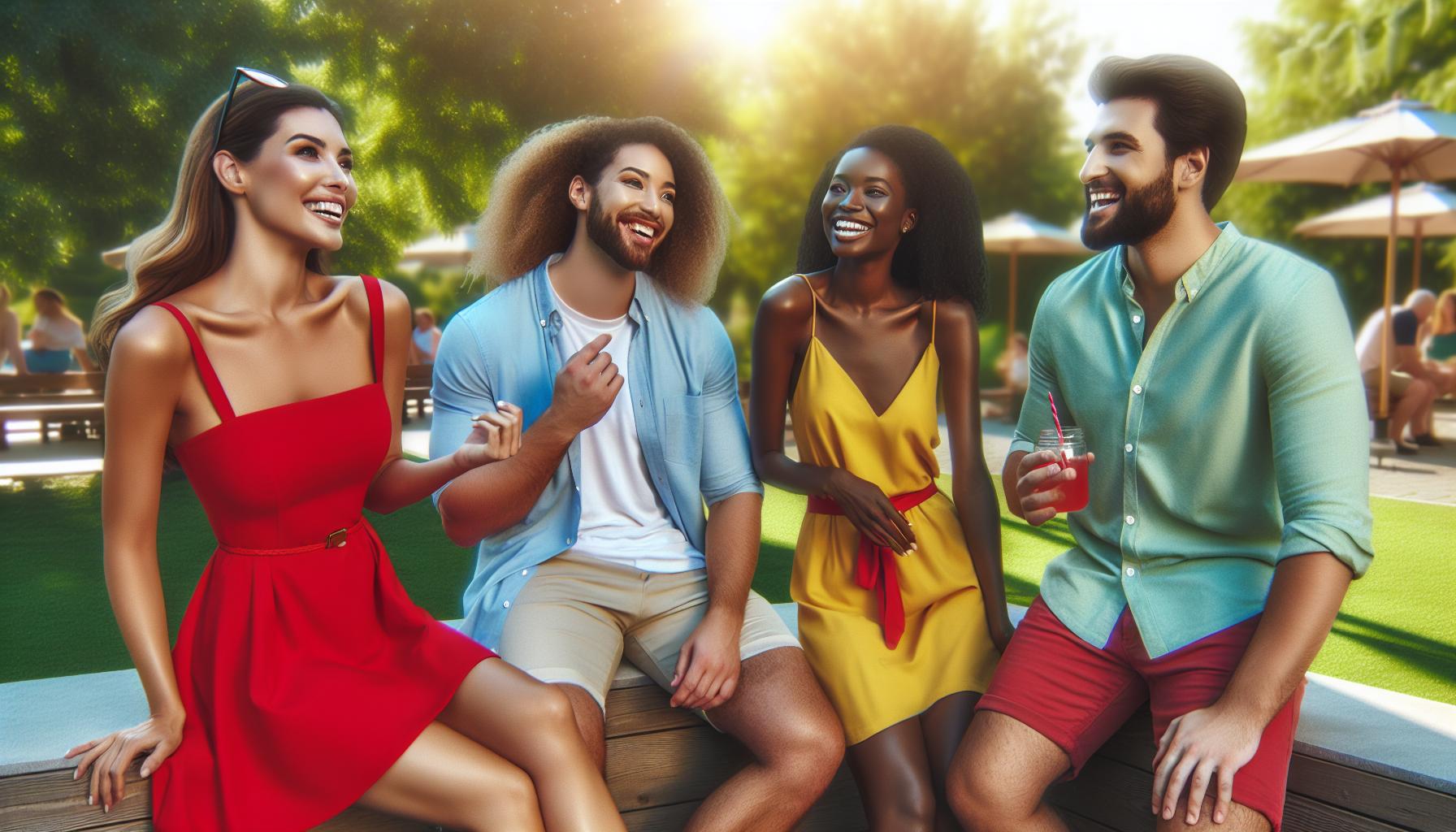Social Media Nudity
- Evolving Norms: Social media nudity blurs the lines between art, personal expression, and community standards, raising important questions about censorship and body positivity.
- Platform Policies: Different social media platforms (like Instagram, Facebook, Twitter, TikTok, and Reddit) have varying guidelines regarding nudity, making it crucial for users to understand these rules for effective self-expression.
- Cultural Attitudes: Cultural perspectives on nudity differ globally; while Western cultures often view it through a lens of sexuality, many non-Western cultures celebrate nudity as natural and integral to identity.
- Psychological Impact: Engagement with varied body representations can enhance body positivity but may also lead to negative self-image and anxiety due to comparison with idealized images.
- Legal Challenges: The balance between freedom of expression and community guidelines presents ongoing conflicts, necessitating discussions about rights, creative expression, and moderation practices.
- Community Dynamics: Nudity-related interactions on social media can foster supportive environments for body positivity while also revealing divides among users with differing viewpoints.
In today’s digital landscape, social media platforms have become a battleground for discussions around nudity and self-expression. As users share more of their lives online, the lines between art, personal expression, and community standards blur. This evolving dynamic raises critical questions about censorship, body positivity, and the cultural implications of nudity in a virtual world.
With platforms implementing strict guidelines, many creators find themselves navigating a complex web of policies that can stifle their freedom. The debate is not just about nudity itself but also about the rights of individuals to express their identities. Understanding the nuances of social media nudity is essential for both users and platforms alike, as it shapes the future of online interaction and community standards.
Overview of Social Media Nudity
Social media nudity encompasses a range of expressions, including artistic nudity, personal sharing, and body positivity. Users frequently engage with nudity for self-expression, challenging societal norms and expectations. This aspect often leads to discussions about censorship, as many platforms impose restrictions that can limit what users share.
Numerous platforms, like Instagram and Facebook, enforce stringent community guidelines regarding nudity. These guidelines typically classify nudity in several categories, affecting user content. Users often encounter inconsistencies in moderation practices, leading to confusion and frustration.
Nudity in social media also reflects broader cultural attitudes toward body image and acceptance. Activists and creators utilize nudity to promote body positivity, seeking to normalize diverse body types. This movement influences the portrayal of nudity and informs community expectations, reshaping societal views.
Understanding the implications of social media nudity requires examining various perspectives, including legal, cultural, and psychological aspects. Discussions about the regulation of nudity continue to evolve, highlighting the need for a balanced approach that respects both freedom of expression and societal standards.
Platforms and Policies

Social media platforms enforce specific guidelines regarding nudity, impacting how users express themselves. Understanding these policies is essential for navigating the landscape of social media nudity.
Major Social Media Platforms
- Instagram: Instagram prohibits explicit nudity but allows artistic nudity, such as fine art. Posts often get removed based on community reports, creating challenges for users trying to express themselves through art.
- Facebook: Facebook’s policy mirrors Instagram’s, allowing certain artistic expressions but banning sexual content. Users can face account restrictions for violating these community standards.
- Twitter: Twitter has a more lenient approach, permitting nudity within specific contexts like artistic expression and educational content. Users often find it easier to discuss body positivity and share intimate content on this platform.
- TikTok: TikTok strictly limits explicit nudity. The platform focuses on community guidelines to maintain a safe environment for younger audiences, leading to the removal of content that borders on nudity.
- Reddit: Reddit’s approach varies by subreddit. Some communities embrace nudity in the context of body positivity, while others maintain stricter rules. Users must familiarize themselves with specific community guidelines.
- Content Moderation: Each platform employs distinct content moderation strategies, with Instagram and Facebook emphasizing user reports, while Twitter adopts a more proactive approach in managing offensive content.
- Cultural Sensitivity: Platforms like Instagram and Facebook often reflect conservative cultural attitudes, influencing their stricter nudity guidelines. In contrast, Twitter’s regulations often align with more progressive perspectives, allowing for broader expressions.
- User Appeals: Users on Instagram and Facebook face challenges when appealing content removals, often receiving limited feedback. However, Twitter offers more transparency, allowing users to contest decisions effectively.
- Advertising Policies: Platforms enforce different advertising standards concerning nudity. Facebook and Instagram prohibit ads featuring nudity, while Twitter permits certain adult content ads, granting more freedom to advertisers.
- Community Engagement: Social media platforms engage users differently about nudity-related policies. Reddit fosters niche communities where users collectively define their community standards, while other platforms follow centralized regulations.
Cultural Perspectives on Nudity

Cultural attitudes towards nudity vary significantly across different regions of the world. These perspectives shape the conversation around social media nudity, influencing users’ self-expression and platform policies.
Western Views
Western cultures frequently associate nudity with sexuality, prompting various reactions to its portrayal on social media. In many areas, traditional media and advertising have historically objectified the human body, establishing a complex relationship between nudity and eroticism. As a result, social media platforms enforce strict guidelines to maintain decorum, which often leads to censorship of artistic nudity. Movements such as body positivity challenge these conventions by promoting acceptance of diverse body types, drawing attention to the social stigma attached to nudity. Activists argue that embracing nudity as a form of self-expression can foster greater body confidence. This ongoing dialogue highlights the need for discussions around inclusivity and normalization of body diversity in Western societies.
Non-Western Views
Non-Western cultures often encompass more varied perspectives on nudity. In many indigenous societies, nudity embodies naturalness and freedom, contributing to cultural rituals and expressions of spirituality. For example, in some African and Pacific Islander communities, traditional practices include communal nudity as a celebration of life and identity. Conversely, other regions impose strict norms regarding modesty, leading to challenges in how nudity is perceived on social media. Countries with conservative religious backgrounds may experience friction between modern social media usage and traditional values regarding body exposure. This divergence influences users’ engagement with nudity online and demonstrates the ongoing conflict between personal expression and cultural expectations in non-Western contexts.
Impact on Users

The impact of social media nudity significantly shapes user experiences and perceptions. This section explores the psychological effects and social interactions that arise from engaging with nudity on these platforms.
Psychological Effects
Engagement with nudity on social media can influence users’ mental health and self-image. Exposure to diverse body representations promotes acceptance, diminishing negative body image and enhancing body positivity. Users often report increased confidence when they see authenticity reflected in their feeds. Conversely, excessive comparison to curated, idealized images can lead to anxiety and dissatisfaction. Content moderation can exacerbate these effects; content removals might prompt feelings of shame or inadequacy among users. Understanding these psychological responses is vital for both users and platform developers to foster healthier online environments.
Social Interactions
Social interactions surrounding nudity on social media cultivate complex dynamics among users. Many individuals find solidarity in communities that embrace body positivity and self-expression, fostering supportive relationships. These interactions can lead to shared discussions on the beauty of diverse bodies, challenging traditional societal norms. However, mixed responses exist; while some users celebrate artistic nudity, others may voice disapproval or report content. These conflicting viewpoints can lead to divisive dialogues, impacting community engagement. Navigating these interactions requires a nuanced understanding of cultural contexts and personal boundaries, ensuring respectful discourse among users with varying perspectives.
Legal and Ethical Considerations
Legal and ethical factors significantly influence the discourse around social media nudity. These considerations shape user engagement, platform policies, and societal norms.
Freedom of Expression
Freedom of expression plays a critical role in discussions about social media nudity. Many creators argue for the right to share their bodies as forms of artistic expression or self-identity. Legal frameworks in various jurisdictions protect artistic endeavors, yet social media platforms often impose stringent guidelines that may inhibit this right. For example, the First Amendment protects free speech in the United States, but platform administrations prioritize community standards to ensure user safety, potentially leading to conflicts between individual liberty and collective regulations. Balancing these interests requires an ongoing dialogue about the nature of expression in the digital era.
Content Moderation Challenges
Content moderation presents significant challenges regarding social media nudity. Platforms struggle to apply consistent policies, resulting in uneven enforcement that confuses users. Automated systems often flag content based on algorithms, leading to misinterpretations of artistic context or educational value. Additionally, community reporting can disproportionately affect marginalized voices, diminishing representation. Advocates for greater transparency argue that clearer guidelines and accountability measures could enhance user trust and promote a more inclusive environment. These challenges highlight the need for nuanced moderation strategies that respect both creative expression and community welfare.
Shape Future Interactions
Navigating the complexities of social media nudity requires a thoughtful approach that balances personal expression with cultural sensitivities. As users continue to challenge societal norms through artistic and personal sharing, the conversation around body positivity and acceptance becomes increasingly vital.
Platforms must adapt their guidelines to reflect the evolving landscape while fostering an environment that encourages diverse representations. By promoting transparency and understanding, both users and platforms can contribute to a more inclusive digital space that respects freedom of expression without compromising community standards. The ongoing dialogue surrounding nudity on social media will undoubtedly shape future interactions and perceptions in this dynamic realm.

